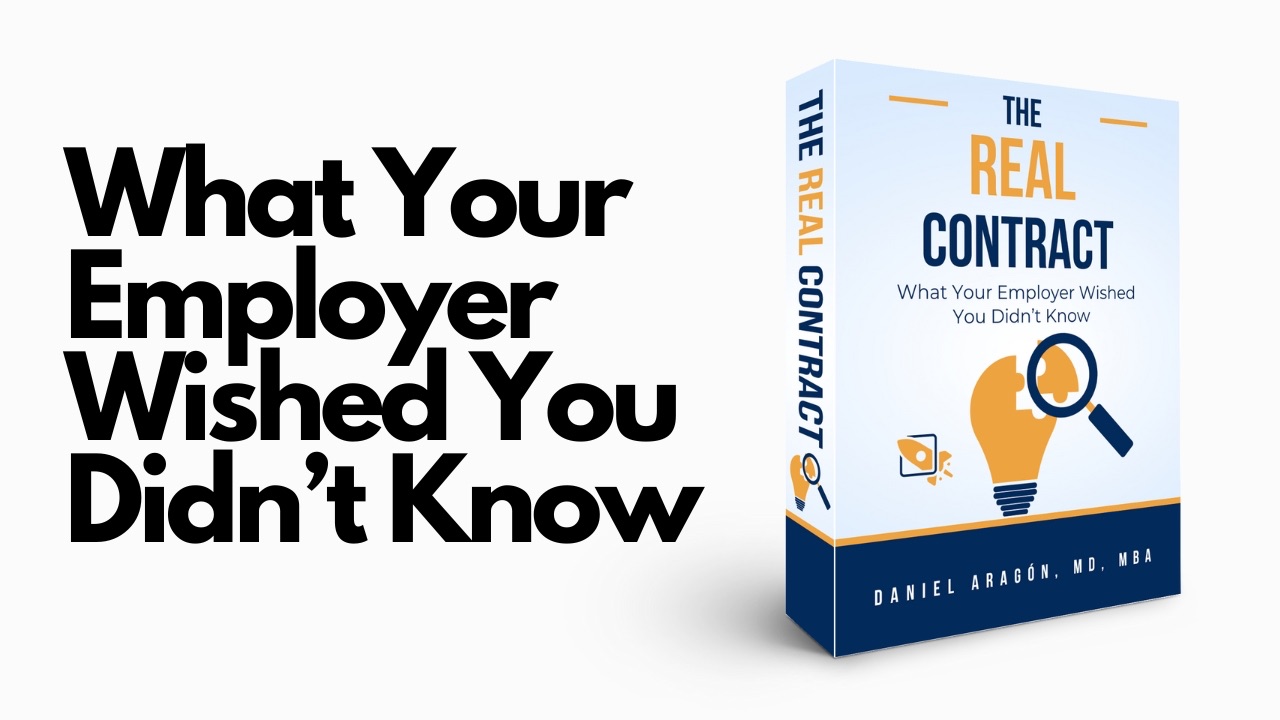
Winning Your Contract Negotiation Before the Meeting Even Starts
Key Takeaways
✅ Most of the battle is won before you ever walk into the room.
✅ Starting with flexible points makes everyone feel like they’re winning.
✅ Understanding what matters most to both sides can unlock better outcomes.
Why Do Some Physicians Get Better Deals Than Others?
Ever wonder why some doctors seem to land higher salaries, better call schedules, or bigger bonus - even when they have less experience?
It’s not luck. It’s not because they’re aggressive. It’s because they prepared.
Ask yourself this:
📌 Would you walk into an OR without knowing the patient’s history?
📌 Would you start a procedure without first checking your instruments?
📌 Would you try to manage a crashing patient without knowing the available resources?
Of course not.
Yet when it’s time to negotiate our contracts, we wing it. We guess. We assume the employer is being fair. That’s how we lose.
What Does “Preparation” Actually Mean?
We’re not talking about writing a speech or memorizing a bunch of numbers. Preparation is about figuring out:
✅ What you actually want: Not just salary, but schedule, bonus terms, PTO, CME time, etc.
✅ What’s flexible and what’s not: Some terms are non-negotiable, but others are surprisingly flexible.
✅ What THEY want: The employer has pressures too. Understanding those can unlock better deals.
Start with the Easy Wins
Let’s say you want three things:
1️⃣ Higher salary
2️⃣ Lower call burden
3️⃣ A better signing bonus
Now ask yourself:
📌 Which one feels easiest for them to say yes to?
Maybe salary is firm, but call flexibility is easier for them to adjust. Start there. Win the easy point first.
📌 Why does that work?
Because once they’ve agreed to one thing, they’ll feel more open to compromise on the bigger issues. Momentum matters.
What Do They Really Care About?
Hospitals don’t just care about costs. They care about:
✅ Filling urgent staffing gaps
✅ Avoiding turnover
✅ Meeting quality benchmarks
✅ Keeping the schedule stable
✅ Balancing physician workloads
If you can frame your requests in a way that helps them meet their goals, you’re far more likely to win.
📌 Example: Instead of saying “I need a higher base salary,” try:
✅ “How would you feel if we adjusted my salary to align with MGMA data? That way, you stay competitive and I feel valued.”
The Power of Asking Questions
Statements close doors. Questions open them.
📌 Try this:
✅ “How would you feel if I covered more weekends to balance the weekday load?”
✅ “What would it take to adjust my call schedule without impacting coverage?”
✅ “Are there creative ways to structure my bonus to reward higher productivity?”
Notice the pattern? These questions make the employer think—not just react.
The Camp David Strategy (Yes, It Applies to Doctors Too)
During the Camp David Accords, negotiators didn’t get stuck arguing over surface demands. They kept digging to uncover what each side really needed.
Turns out, one side didn’t just want land, they wanted security. The other side didn’t just want recognition, they wanted trade partnerships.
Once those deeper needs became clear, they found a solution.
📌 So ask yourself:
✅ What does my employer actually care about?
✅ What’s driving their resistance?
✅ What do they need that I can offer?
That’s where the real leverage is.
Preparation Means More Than Just Numbers
Yes, you need data—MGMA benchmarks, RVU rates, and fair market value. But you also need strategy.
📌 Ask yourself:
✅ Where can I compromise?
✅ What will I walk away from?
✅ What’s my “best alternative” if this deal falls through?
When you know those answers, you don’t just walk into a negotiation, you walk in with confidence.
What Happens If You Don’t Prepare?
📌 You say: “I’d really like more vacation.”
🚨 They say: “That’s not possible.”
Now what? Without preparation, you’re stuck.
But if you’d prepared, you’d know to say:
✅ “Would you consider adjusting my schedule instead?”
✅ “Could we increase my CME time if PTO is firm?”
✅ “How would you feel if I swapped weekend call for more weekday flexibility?”
Preparation turns dead ends into new options.
What Should You Ask a Lawyer During Your Contract Review?
Your lawyer isn’t there to tell you whether you “like” the job. They’re there to protect you from financial and career traps.
But here’s the mistake many physicians make: we show up unprepared.
Instead of spending your whole appointment asking, "What does this mean?", you should be asking:
✅ “How would you feel if I agreed to this non-compete?”
✅ “Is this tail coverage standard?”
✅ “If I break this contract, what happens next?”
Your lawyer’s job isn’t to guess what you want. It’s to help you spot what could hurt you.
The Course That Prepares You to Ask the Right Questions
Before you meet with your lawyer, you need to know what to ask. That’s where The Real Contract Course comes in.
📌 In just 2 hours, you’ll learn:
- How to spot red flags in your contract.
- Which contract terms you must negotiate.
- How to make your lawyer’s review faster and better.
Physicians who take this course walk into their lawyer’s office ready to ask focused, smart questions. And that’s what leads to better outcomes.
✅ Understand key clauses like non-competes and tail coverage.
✅ Ask informed questions to maximize your lawyer’s value.
✅ Feel confident, prepared, and ready to secure the best deal possible.






